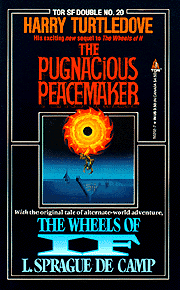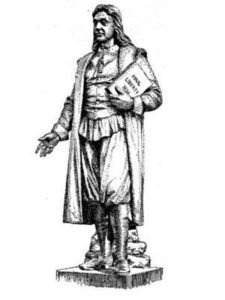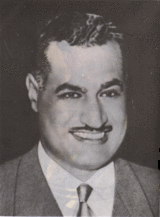| L. Sprague de Camp | "Yezid spoke up 'But a little longer..and the Franks will melt away'. Ya'qub snorted 'How long do you think our men will abide this fearful Frankish climate? I say strike now, whilst their spirits are up'. Emotionally Abdul Rahman Al Ghafiqi, Governor-general of al-Andalus and Lord of Damascus burned to get to grips with the army of Charles Martel, Mayor of Austrasia so he said 'I have decided Ya'qub's advice is sounder.'" |
 | |
| Historian |
| In the Wheels of If L. Sprague de Camp described the Frankish defeat at the Battle of Tours in 742 AD, consolidating Arab hegemony in Europe. The destruction of Central European military power gifted the North-West periphery to the Norsemen, sustaining Celtic power in Scandinavia and Great Britain. One consequence was the Viking settlement of North eastern Turtle Island and the subsequent formation of the Bretwaldate of Vinland. The review of the historical masterpiece is available at Eternal Night Review | |
| ~ quotation by Alternate Historian |
| ||||||
~ entry by Alternate Historian
 George Wallace | In 1976, Thalmus Rasulala reads Arthur Bremer's An Assassin's Diary. The diary describes how Wallace, whilst campaigning in Laurel, Maryland, on May 15, 1972, Wallace was shot five times by a would-be assassin named Arthur Bremer. Three others wounded in the shooting survived. Bremer's diary, published after his arrest showed that Bremer's assassination attempt was not motivated by politics, but by a mysterious voice in his head; a Mandinka discerned Rasulala. |
| In 1635, Founder of Rhode Island Roger Williams spoke out against punishments for religious offences and giving away Native American land. Labelled by a minority as a religious dissident, most of the Christian people of Massachusetts Bay Colony saw the truth of Williams' wise words. A fresh start could begin in America with peaceful co-existence between indigenes and the European settler. After all, it really is a Big Country. | Simmons |
 Nasser | In 1969, Richard Z. Chesnoff, Edward Klein, and Robert Littell published How Israel Lost the War. The journalists recount how Israel hoped for a diplomatic settlement, but Arab forces delivered a devastating surprise attack on June 5, 1967. A day-by-day account of the six-day fall of Israel and its repercussions in the US, USSR and the new UAR is given in this masterpiece. |
| In 2007, mysterious agents appear at the publisher's which is computer engineer Robert A. Taylor's place of work. Attempting to escape through a window ledge, he is captured and then taken away for interview. |  Agents |


No comments:
Post a Comment